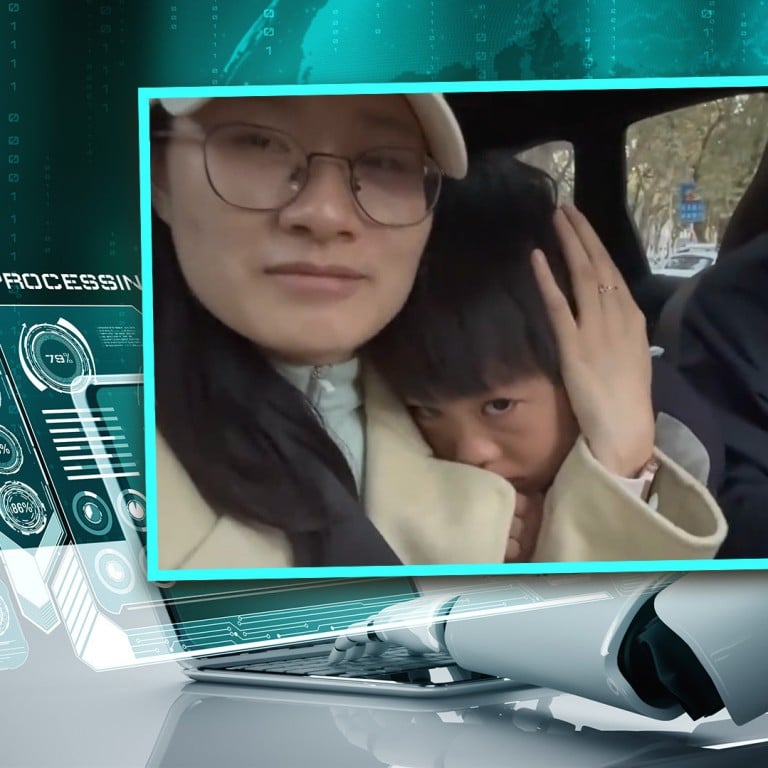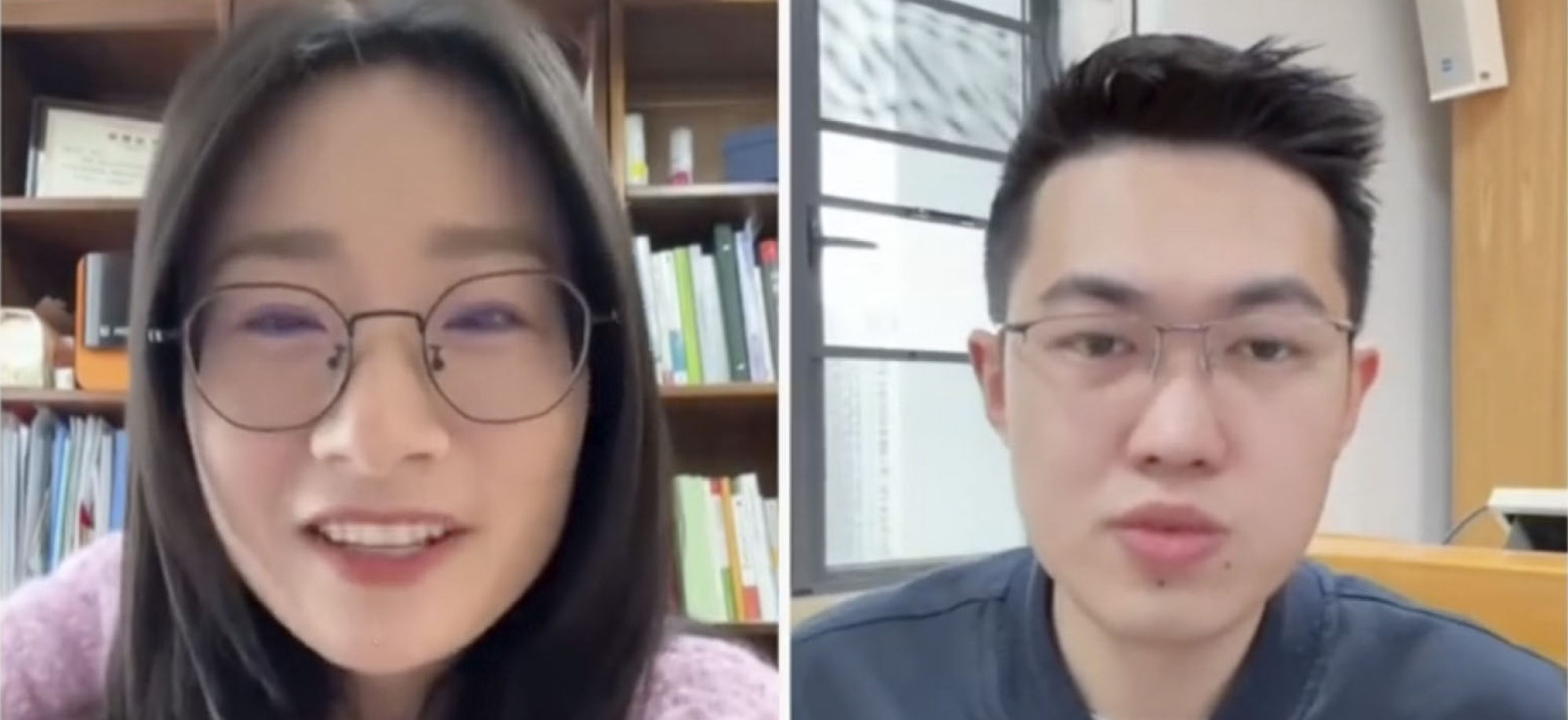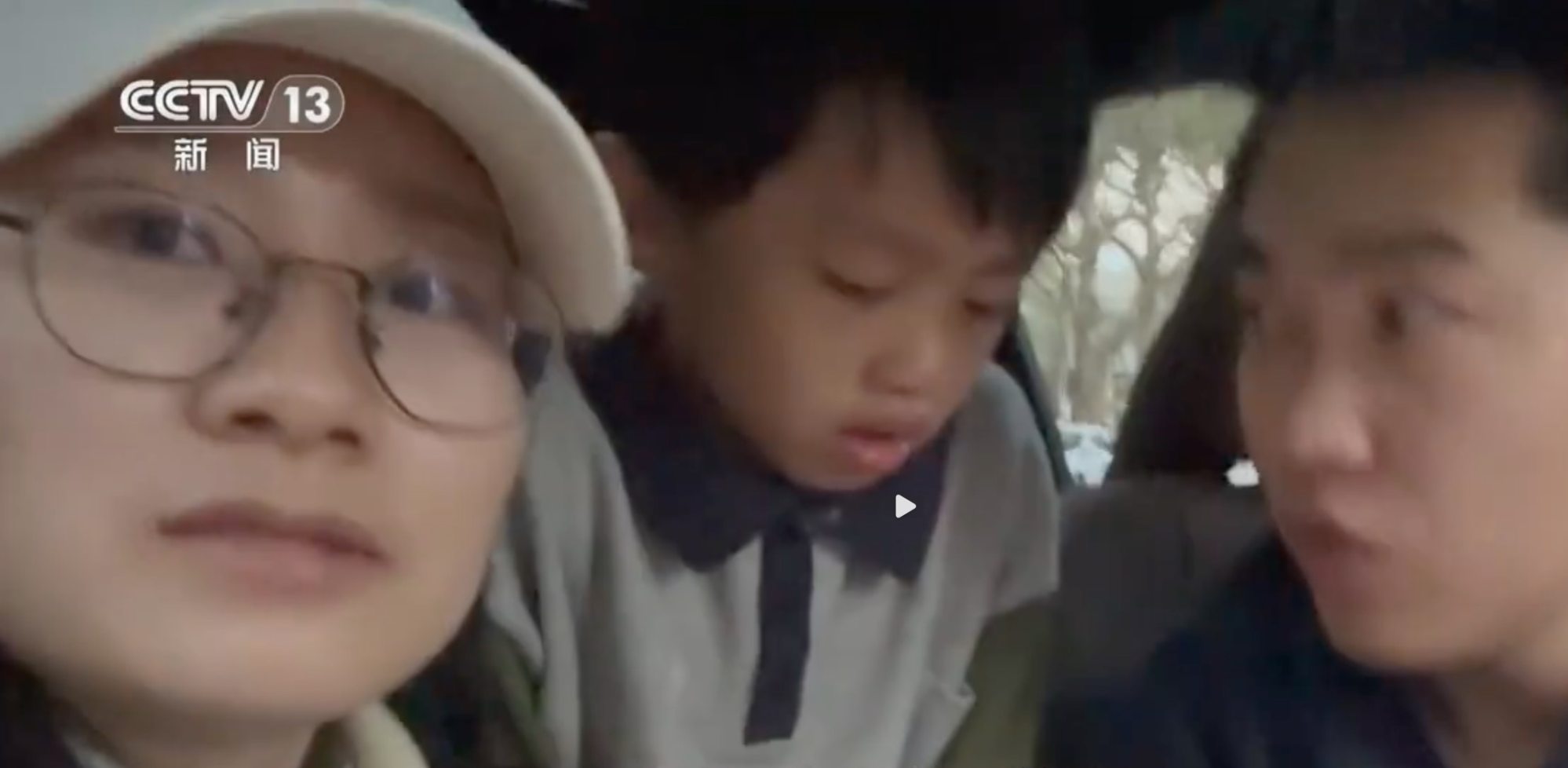
China PhD parents use ChatGPT to comfort son, 5, who was mocked after playground fall, earn praise for creative parenting
- Artificial intelligence bot tells child that people laughing at his misfortune are wrong
- Parents say AI has become ‘member of family’, helps them work through problems
A pair of PhD parents in China who used artificial intelligence, or AI, to comfort their five-year-old son who was ridiculed at school after he fell while playing, has inspired many people online.
Last November, Tang Wenju posted a video of her and her husband, Chen Xiangyu, parenting their son using the generative AI chatbot ChatGPT, on Douyin.
The video went viral on mainland social media after China Central Television (CCTV) interviewed the young couple about their AI parenting.
Their son, nicknamed Twelve, fell down on the playground while riding his scooter, and was laughed at by other onlooking parents.
He remained upset about the laughter no matter how the couple tried to console him, and Chen, a PhD candidate in data science at Tsinghua University, decided to resort to ChatGPT.

ChatGPT, created by OpenAI, is a conversational bot that can understand sophisticated questions and give human-like answers. It was launched in 2022 and allowed voice chat in November 2023.
“Let’s hear what the robot says,” Chen told his son.
He then asked the bot on his phone, in Mandarin: “My five-year-old child accidentally fell down while playing with his scooter, and other parents laughed at him. Was their behaviour right or wrong?”
A female voice immediately answered in the same language: “It is worrisome enough that a five-year-old child fell down, and being laughed at must make him feel even more troubled. The behaviour of those laughing at him is inappropriate.”
Then it occurred to Tang, a linguistics teacher at Hubei University in Wuhan in the central province of the same name and a PhD graduate from Peking University, that the best way to comfort a person is to become their ally.
She instructed the chatbot to stand in her son’s shoes and criticise those who laughed at him.
ChatGPT then began “her” speech: “First, they have gone too far. How can they treat a child like this? Second, it is so irritating to see something like this happen.
“They should know what they did was completely wrong. Third, laughing at a fallen child is such a lack of sympathy.
“Your child is the absolute righteous party in this situation. He deserves a better reaction,” ChatGPT concluded.
Tang said Twelve was immediately convinced by “the objective view” of the chatbot.

Tang said she was initially skeptical of artificial intelligence, but after her husband recommended her ChatGPT, she was captured by its “magic”.
She said ChatGPT now has become a “family member”, providing her emotional comfort, while helping her with work and parenting.
On the mainland social media platform Xiaohongshu, other parents shared their parenting experience with AI.
A mother of a first-year primary school boy in central China’s Anhui province said she sought help from an AI chatbot every time her son asked her something she could not answer.
Another mother of two primary school boys, based in Beijing, said she used AI to generate cartoons from her elder son’s stories to encourage him to create more.

